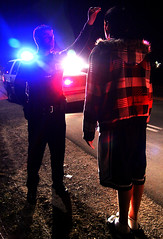The anti-drunk driving organization, MADD, is pushing for $60 million in federal funding to research technology that would prevent any car from starting if the driver is intoxicated. These goal of such systems standard in all cars, and possibly set at the threshold level of “any” alcohol, are prompting concerns that MADD has veered into being a neo-prohibitionist organization.
This article from the Dallas Morning News outlines the agenda for MADD, which includes a push for this research, as well as continuing lobbying efforts to require an ignition interlock device installed in any driver’s vehicle after a DWI conviction. Thought interlock devices are mandatory for 1st offense drunk driving charges in Arizona, Illinois, and other states.
However, under Texas law, the devices are only mandatory on first offense convictions if the driver recorded a BAC level or .15% or higher, or nearly twice the legal limit of alcohol in the bloodstream. Interlock requirements are typically coupled with a Texas Occupational Licence.
The article also notes recent criticism of MADD from Charity Navigator and the American Institute of Philanthropy, which rated the organization as having poorly allocated its charitable funds. But there is also an argument that MADD is a lobbying group more than a traditional charity with needy recipients, so it’s effectiveness, like it or not, is best measured in how well it passes legislation that meets its organizational goals.
And by most measures, they have been effectively, particularly in increasing the severity of ignition interlock requirements in different states nationwide.
But this new effort at enforcing drunk driving laws at the level of every vehicle on the road has many people concerned about civil liberties and privacy issues. There are countless issues raised by these systems.
- How does due process work if everyone is a suspect?
- What threshold alerts the system to stop the ignition from starting?
- Who controls the data captured?
- How accurate are the systems?
- What if a passenger is drunk, and the driver is the responsible one? Can the environmental sensors tell the difference?
There is a considerable risk of any such data being used to incriminate people, or raise suspicion, even in cases when a person is within the law.
What if a person regularly drives with a level at .06 or .o7% BAC? Does the government capture that information? Can they use it to keep a close eye on anyone on the road known to drive with a couple of drinks in them?
This kind of road tracking surveillance data would be easy to use and implement with automatic license plate scanners in police cruisers, and access to this data.
The data mining and “big brother” possibilities of these systems need to be worked out well before any of these technologies hit the road, because unwinding them will be difficult to do.



